Cunqing Hua
Are We There Yet? Unraveling the State-of-the-Art Graph Network Intrusion Detection Systems
Mar 26, 2025
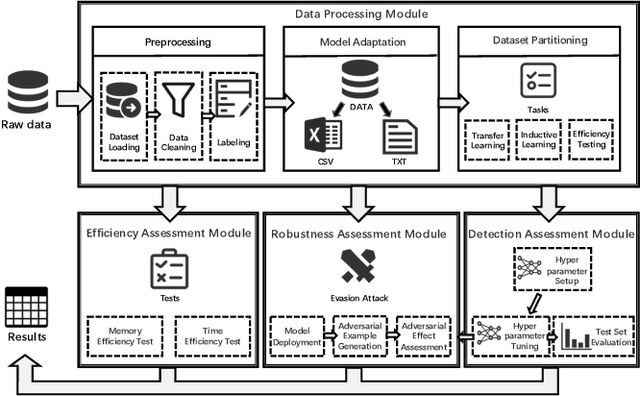

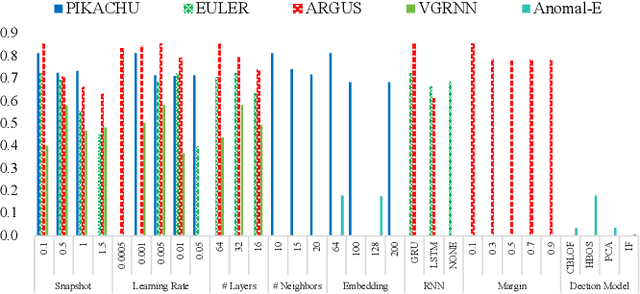
Abstract:Network Intrusion Detection Systems (NIDS) are vital for ensuring enterprise security. Recently, Graph-based NIDS (GIDS) have attracted considerable attention because of their capability to effectively capture the complex relationships within the graph structures of data communications. Despite their promise, the reproducibility and replicability of these GIDS remain largely unexplored, posing challenges for developing reliable and robust detection systems. This study bridges this gap by designing a systematic approach to evaluate state-of-the-art GIDS, which includes critically assessing, extending, and clarifying the findings of these systems. We further assess the robustness of GIDS under adversarial attacks. Evaluations were conducted on three public datasets as well as a newly collected large-scale enterprise dataset. Our findings reveal significant performance discrepancies, highlighting challenges related to dataset scale, model inputs, and implementation settings. We demonstrate difficulties in reproducing and replicating results, particularly concerning false positive rates and robustness against adversarial attacks. This work provides valuable insights and recommendations for future research, emphasizing the importance of rigorous reproduction and replication studies in developing robust and generalizable GIDS solutions.
Reliable long timescale decision-directed channel estimation for OFDM system
Feb 18, 2024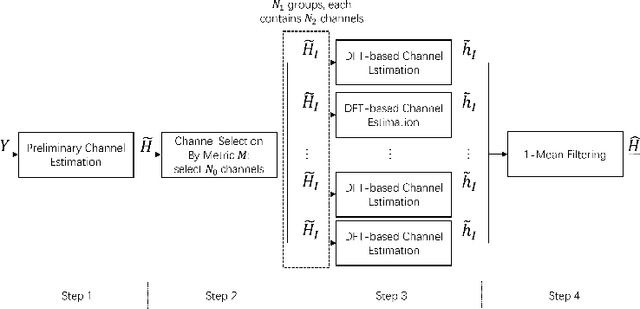
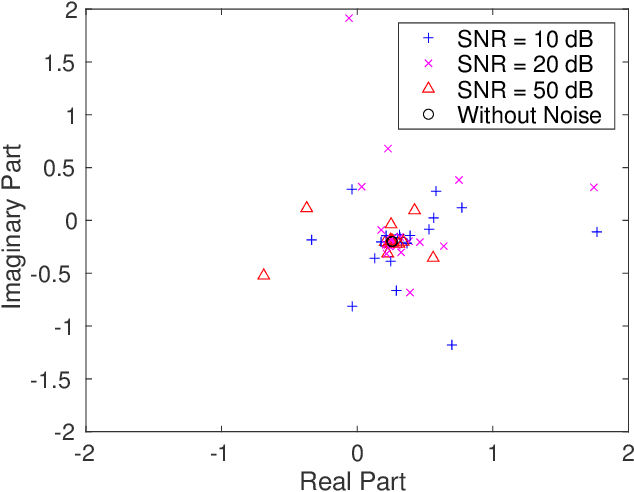
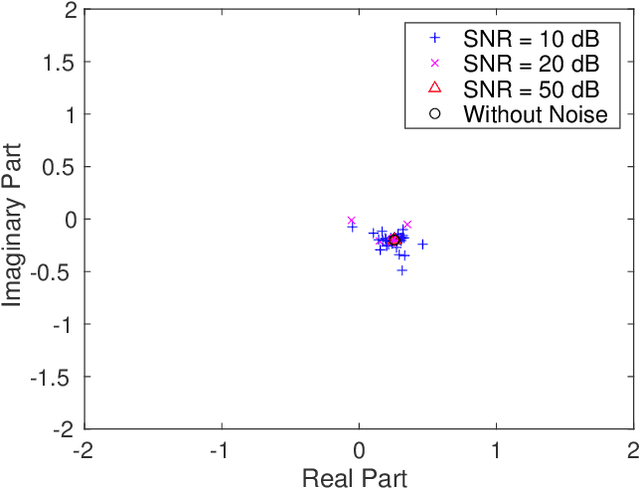
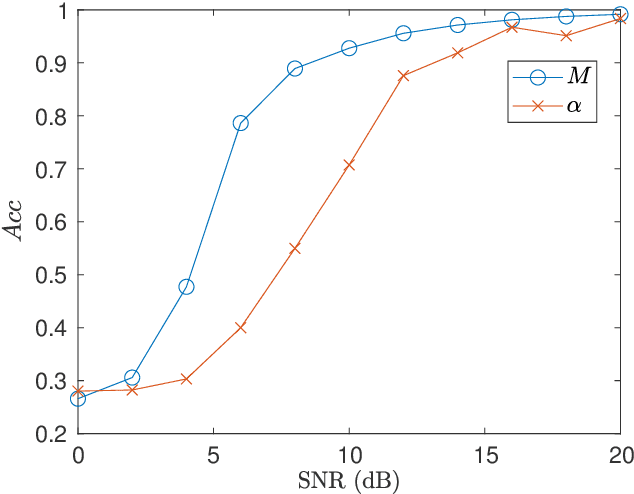
Abstract:Decision-directed channel estimation (DDCE) is one kind of blind channel estimation method that tracks the channel blindly by an iterative algorithm without relying on the pilots, which can increase the utilization of wireless resource. However, one major problem of DDCE is the performance degradation caused by error accumulation during the tracking process. In this paper, we propose an reliable DDCE (RDDCE) scheme for an OFDM-based communication system in the time-varying deep fading environment. By combining the conventional DDCE and discrete Fourier transform (DFT) channel estimation method, the proposed RDDCE scheme selects the reliable estimated channels on the subcarriers which are less affected by deep fading, and then estimates the channel based on the selected subcarriers by an extended DFT channel estimation where the indices of selected subcarriers are not distributed evenly. Simulation results show that RRDCE can alleviate the performance degradation effectively, track the channel with high accuracy on a long time scale, and has good performance under time-varying and noisy channel conditions.
DoF Analysis for -Channels through a Number-Filling Puzzle
Feb 03, 2024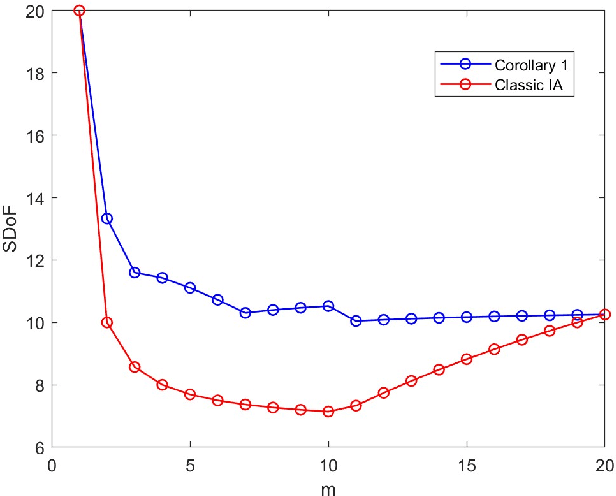
Abstract:We consider a $\sf K$ user interference network with general connectivity, described by a matrix $\mat{N}$, and general message flows, described by a matrix $\mat{M}$. Previous studies have demonstrated that the standard interference scheme (IA) might not be optimal for networks with sparse connectivity. In this paper, we formalize a general IA coding scheme and an intuitive number-filling puzzle for given $\mat{M}$ and $\mat{N}$ in a way that the score of the solution to the puzzle determines the optimum sum degrees that can be achieved by the IA scheme. A solution to the puzzle is proposed for a general class of symmetric channels, and it is shown that this solution leads to significantly higher $\SDoF$ than the standard IA scheme.
AirCon: Over-the-Air Consensus for Wireless Blockchain Networks
Nov 30, 2022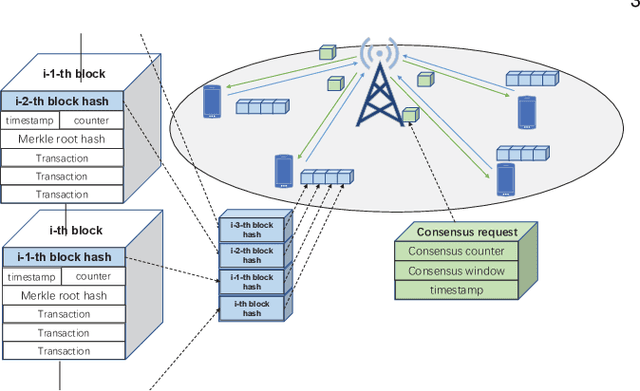
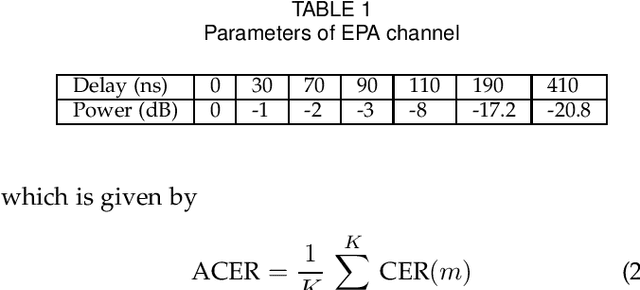
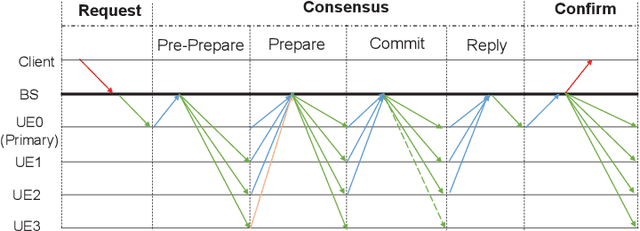
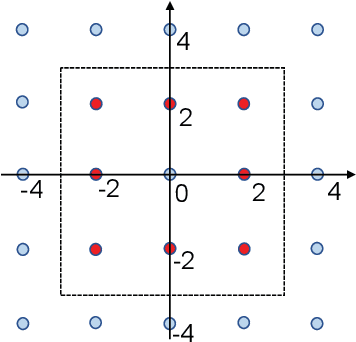
Abstract:Blockchain has been deemed as a promising solution for providing security and privacy protection in the next-generation wireless networks. Large-scale concurrent access for massive wireless devices to accomplish the consensus procedure may consume prohibitive communication and computing resources, and thus may limit the application of blockchain in wireless conditions. As most existing consensus protocols are designed for wired networks, directly apply them for wireless users may exhaust their scarce spectrum and computing resources. In this paper, we propose AirCon, a byzantine fault-tolerant (BFT) consensus protocol for wireless users via the over-the-air computation. The novelty of AirCon is to take advantage of the intrinsic characteristic of the wireless channel and automatically achieve the consensus in the physical layer while receiving from the end users, which greatly reduces the communication and computational cost that would be caused by traditional consensus protocols. We implement the AirCon protocol integrated into an LTE system and provide solutions to the critical issues for over-the-air consensus implementation. Experimental results are provided to show the feasibility of the proposed protocol, and simulation results to show the performance of the AirCon protocol under different wireless conditions.
 Add to Chrome
Add to Chrome Add to Firefox
Add to Firefox Add to Edge
Add to Edge